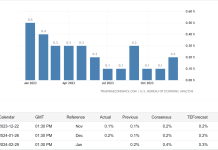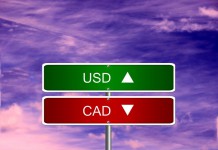
The new decade started only a few weeks ago and has already featured perhaps one of the most important events of the decade. Brexit is the withdrawal of the United Kingdom from the European Union. Following a June 2016 referendum, in which over 53% of the population voted to leave the EU, and 48% of the population voted to stay in the EU, the UK government formally announced the withdrawal of the country from the union back in 2017. This was the period when the whole process began. After almost three years, the UK has finally officially left the union, and left a lot of unanswered questions for people within different sectors.
Brexit has already and will cause a lot of changes in every industry sooner or later. Though, already after the late-night British parliamentary proceedings, epic volatility in the EUR/GBP live chart and capital flows occurred with every twist and turn of the Brexit saga.
It was an ordinary Friday evening, with the extraordinary Saturday morning following. The UK woke up in a completely new certain reality, with ending the political uncertainty. Though, it set up the new uncertainty, which is the future of the country and the union on a global scale.
Several experts have already addressed the event and all the questions around it. They have stressed topics such as sovereign risk, corporate earnings, market valuations and many more.
UK after Brexit
Most of the countries will need some time to recover from the shock and to reinvent themselves as well as stay competitive in the market. As for the UK itself, they will definitely be facing the “J Curve”, though the country should maintain the leading positions within different industries. Britain is the third country after the US and China in terms of technological innovations, such as AI, biometrics, and robotics. Now, as the country gained more freedom, there is a big chance that it will even overcome its competitors.
More focus should be put addressing the vision of the UK government, rather than the negotiation status of various parties or quarter by quarter developments. Some of the experts suggest that the UK will choose the Singapore-type vision and will structure the institutions and system accordingly. One thing is for sure though, that the country will shape a completely different path rather than before.
Foreign Investors
The strategist at Deutsche Bank, Oliver Harvey made the statement regarding the further investments made within the country. There is no doubt that Brexit has affected the attractiveness of the country for the investors. It is no longer part of the EU and finding another place to invest in is not that hard to do. According to Article 50, published in March 2017, the country has attracted over 300 billion pounds of foreign-direct investment inflows, though, after only two years’ time, it has seen approximately 40 billion outflows.
Nor is the basic decrease in foreign demand for U.K. resources liable to be switched at any point in the near future. Regardless of whether a Free Trade Agreement has been the topic of discussion with the EU before the current year’s over, the government intends to leave the EU customs union and single market. This will bring about the biggest escalation in trade-related exchange costs for an industrialized economy in present-day financial history.
The currency has already reflected a similar shock previously. The pound is seen to be expensive while using the models that take into account productivity. According to the observations, the output per hour has declined within the past two years. Some actions need to be taken and some adjustments to both the fiscal and monetary responses have to be made.
The UK should address the Brexit plans in order to smooth the changes. There are some major factors to take into consideration. According to Oliver Harvey “For gilts, this means that increased issuance could partially offset the effect of rate cuts on yields. For the currency, a combination of a larger budget deficit and looser monetary policy points to further weakness.”
Pound Recovery
Chief Currency Strategist at Societe Generale, the multi investment banks, and financial services company, Kit Juckes addressed the possible pound recovery over the next five years.
The pound sterling is one of the most stable currencies in the world, though due to Brexit and consequently some of the major changes, it is currently 11% below the 25 year average level in trade-weighted terms. The highest point reached by the pound was back in 2000 when the country saw the overall 4% economic growth. Not it is 25% below the highest record as well, and it is very unlikely that the pound will recover its highest index any time sooner.
The best post-financial-crisis level of the pound was in 2015, which was right before the Brexit referendum. Despite the huge challenge the pound is facing right now, it still manages to have pretty extreme valuation. Although taking into consideration the uncertainty of the market and the economic weakness, the pound is most likely to particularly rebound within the next five years. Though, the maximum rebound percentage is expected to be only 5%.
The current range of the EUR/GBP is 0.75 to 0.85, which is still a very optimistic post-Brexit outlook. Despite that, it is a relatively very low indicator compared to the one 25 years ago, the pound will most probably return to a 1.40-1.169 range USD/GBP within the next five years.

















